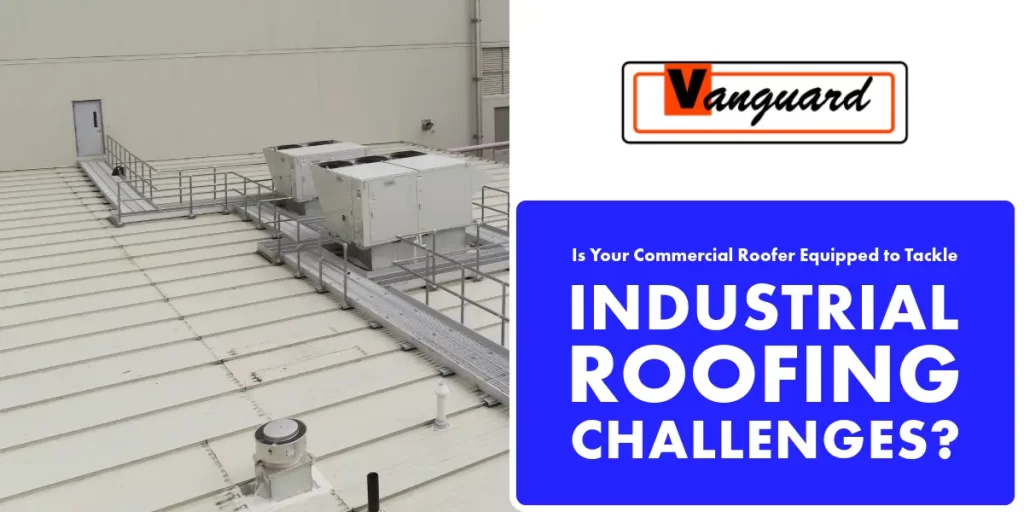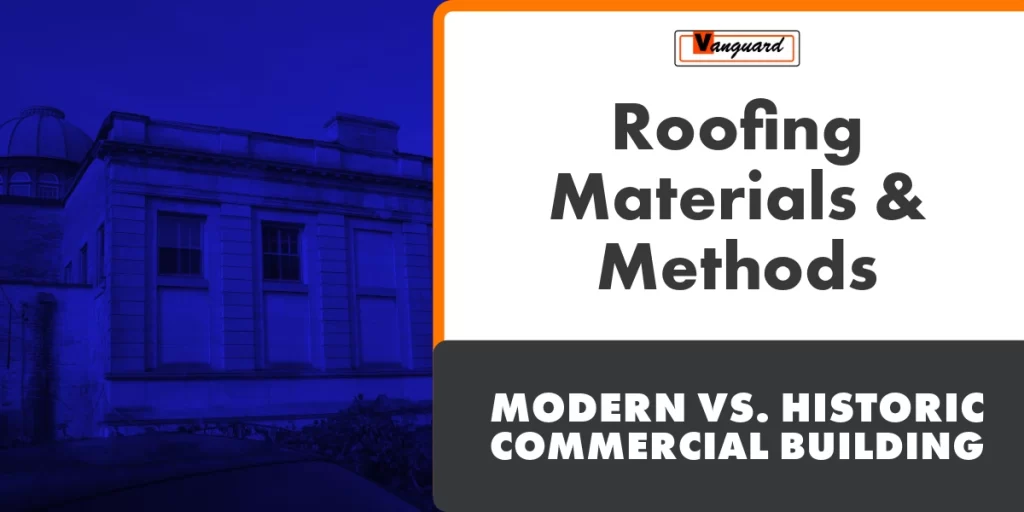Commercial roofs, just like residential roofs, must be inspected periodically to catch leaks and other developing problems early before they cause expensive damage. The lifespan of a commercial roof can be decades, depending on the quality of the materials and the installation. Here are important points to remember to form a better understanding of the factors which affect the lifespan of your commercial roof.
Mild vs. Stormy Weather
One of the main factors which determine the lifespan of any roof is the climate. Environmental elements play a big role in the gradual degradation of shingles, gutters, flashings, and other roof components. Cold, snowy, or rainy weather accompanies salt buildup which can cause the metal to rust. Snow also creates ice dams, which trap water on roofs.
Proper Installation
Another critical key to a roof’s longevity is whether or not it was installed properly. Many times the top reason for early major roof repairs is the installers cut corners, such as nailing down drain covers insufficiently. Hidden leaks can result from poor installation, as they grow over time if they go unnoticed. Using the right materials and tools is essential for proper installation. This is why building owners and managers should only work with certified and insured roofers who follow best industry practices.
Type of Roof: Flat vs. Sloped
Flat roofs present the problem of potentially storing excessive water if the drainage system is clogged. Depending on the roofing material, the weight of water buildup can lead to a sagging roof, which is dangerous to building occupants. The key to flat roof maintenance is making sure there is no water buildup over time and the drains are regularly cleaned.
The more sloped a roof, the better its ability to shed water and ice. Flat roofs, however, have more long-term efficiency advantages than low-sloped roofs, which tend to experience more damage.
Exposure to the Sun
The problem with sunny climates is that too much exposure to UV rays causes roof colors to fade. The darker the material, the more it absorbs the sun’s energy. Dark shingles or roofing material will lighten over time particularly in regions with hot summers. Heat contributes to speeding up degradation. High-quality shingles and other roofing products which are designed to withstand intense UV rays will definitely have a longer lifespan than solutions without a protective coating.
Ventilation and Insulation
Proper ventilation is essential so your roof does not get overheated during the hot months. Ventilation has a cooling effect on the roof when it runs properly. But when ventilation is clogged with dust and debris it can limit this cooling effect, causing roofing components such as asphalt shingles to get too hot. Excessive roof heat can cause condensation which leads to moisture, which can damage the wood decking.
Insulation plays a similar role in affecting both the interior and exterior temperature of the building. Poor insulation can raise the roof’s temperature to damaging levels. Proper ventilation and insulation lead to a more energy-efficient system which lowers costs and contributes to a roof’s longevity.
Regular Inspections
The best way to avoid huge maintenance bills and extend the life of your commercial roof as long as possible is to regularly schedule an experienced, reputable roofer to conduct thorough inspections. Leaks and cracks should be repaired right away to avoid continued damage. A few inspections per year, and after major storms, should give you a clear indication on the health of your roof.
Assessing Overall Roof Lifespan
The lifespan of a commercial roof with asphalt shingles is 20-30 years, whereas concrete and steel last much longer. In some cases, concrete or steel can last fifty years or more. But these estimates presume you will have professional roofers regularly inspect your roof to fix leaks and cracks before they lead to bigger problems.
It’s important to project the lifespan of your roof so that roof replacement never becomes a sudden ordeal. Make sure you understand the terms of your warranty so you know how long the roof is covered for repairs and manufacturer defects. Only let contractors who are certified by the roof manufacturer work on the roof if it is still under warranty. Definitely avoid contractors who lack experience, since warranties typically don’t cover errors made by non-certified technicians.
Overall, age is something which affects all roofs, regardless of materials or how well constructed. When deciding between a repairing roof which is several decades old and a roof replacement, consider worker safety as a top priority.
Developing a commercial roof maintenance plan is the most effective way to extend the lifespan of your roof for as long as possible. The more care you put into your roof, the longer it will last. Contact us at Vanguard Roofing for more information about roof repair, replacement and extending the lifespan of your existing roof.


